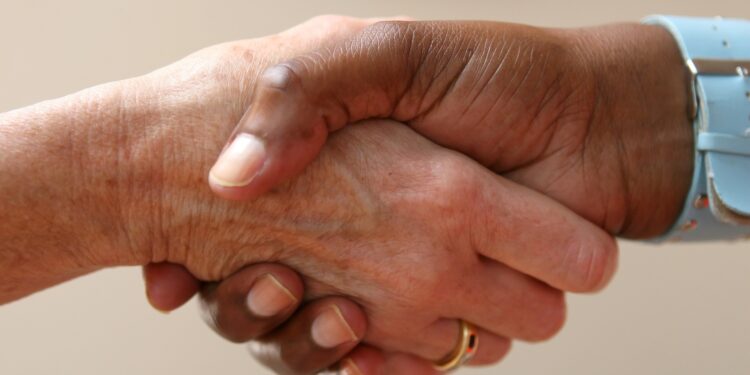A Call for Empathy and Understanding
As an emergency department physician, I have seen it all – from minor cuts and bruises to life-threatening conditions. Each day is a new challenge, and we never know what we will encounter. It can be an overwhelming and stressful job, but at the same time, it is one of the most rewarding experiences a physician can have.
Patients often come to the emergency department with high expectations. They want to be seen quickly and receive immediate medical attention. And rightly so – their health and well-being are at stake. However, what many patients fail to understand is the human side of emergency medicine – the long hours, the stress, and the pressure to provide the best care possible under difficult circumstances.
The emergency department is not a regular doctor’s office. It is a fast-paced, high-stress environment where doctors and nurses work around the clock to save lives and prevent further harm. We have to be alert, efficient, and decisive, all while maintaining empathy and compassion toward our patients. The work we do is essential, but it is not without its challenges.
One of the biggest challenges faced by emergency physicians is time. An emergency department is a place where time is of the essence, and every minute counts. We have to make quick decisions based on limited information and prioritize patients based on the severity of their condition. This means that patients with more critical injuries or illnesses may be seen before those with less urgent conditions. It is not a matter of preference; it is a matter of saving lives.
Another challenge is the lack of resources. In the emergency department, we have to make do with what we have. We may have limited staff, limited equipment, and limited supplies. We have to be resourceful and think outside the box to provide the best possible care. This can be difficult, but it is a challenge that we are willing to face every day.
Despite the challenges, emergency medicine is a calling. We have chosen this profession because we want to make a difference in people’s lives. We want to be there for our patients when they need us the most, and we take pride in the work we do. But, we are human, just like our patients.
We have families and responsibilities outside of work. We have personal lives that can be just as demanding and stressful as our professional ones. We get tired, hungry, and sometimes frustrated. We have emotions, and we feel the pain of our patients.
So, what can patients do to help us? The answer is simple – understanding. We ask patients to understand that we are doing our best to provide the best possible care under challenging circumstances. We ask them to be patient, even when they are in pain or discomfort. We ask them to be kind and respectful to our staff, who work tirelessly to ensure patients receive the care they need.
We also ask patients to be honest with us. If they have a history of medical conditions or allergies, they should let us know. If they are taking medications, they should bring a list or the actual medication bottles with them. This information can help us make better decisions and provide better care. If unable, that is fine because extenuating circumstances may not allow this, but if at all possible, this would help. We recommend keeping a list in your wallet or phone.
Emergency medicine is a challenging but rewarding profession. It is a calling that requires empathy, compassion, and dedication. As emergency physicians, we do our best to provide the best possible care to our patients under difficult circumstances. We ask patients to understand the human side of emergency medicine and to be patient, kind, and respectful to our staff. We also ask them to be honest and prepared when they come to the emergency department. By working together, we can ensure that patients receive the care they need while also respecting the challenges faced by emergency physicians and staff.
One way patients can show their support for emergency physicians and staff is by being advocates for emergency medicine. Many people do not realize the importance of emergency medicine until they need it themselves. Patients can help raise awareness about the daily vital work that emergency physicians and staff do. They can share their stories on social media, participate in community events, and support emergency medicine organizations.
Patients can also provide feedback to emergency physicians and staff. After receiving care in the emergency department, patients can share their experiences with the hospital administration. This feedback can help improve the quality of care provided by emergency physicians and staff and ensure that patients receive the best possible treatment in the future.
Finally, patients can show their appreciation for emergency physicians and staff. A simple thank you can go a long way in boosting the morale of emergency physicians and staff. Patients can also write letters of appreciation or leave positive reviews on hospital websites. These small gestures can make a big difference in the lives of emergency physicians and staff, who often work long hours and face high levels of stress.
In conclusion, emergency medicine is a challenging and demanding profession that requires empathy, compassion, and dedication. Emergency physicians and staff work tirelessly to provide the best possible care to their patients under challenging circumstances. Patients can support emergency medicine by understanding the human side of emergency medicine, being honest and prepared when they come to the emergency department, being advocates for emergency medicine, providing feedback, and showing their appreciation for emergency physicians and staff. By working together, we can ensure that patients receive the best possible care while also supporting emergency physicians and staff.
TeenyDose is your resource for navigating the healthcare world. Providing tips for patients who seek help with medical questions and for providers who need resources to help their patients best. If you love what you read here, don’t be selfish. Share it with your friends. We would love to hear from you if you have suggestions or wish to be a contributor.








